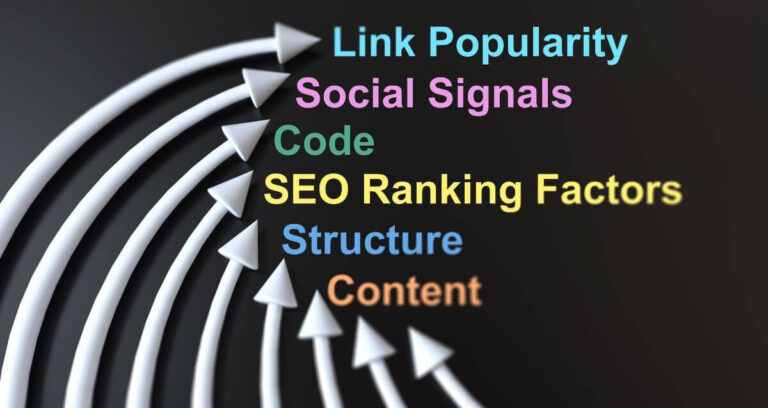
Table of Contents
- Understanding the Searcher’s Intent
- Content is King: Size Does Matter
- Strategic Placement of Exact Match Keywords
- Optimizing User Experience
- Keyword Density: Number of Times a Keyword is Used
- Importance of Metrics in On-Page SEO
- Effective Use of Internal and Outbound Links
- Blogging: A Powerful SEO Tool
- Aiming for Conversions
- Ensuring Website Crawlability
- Achieving On-Page SEO Success with Thriveark
- Frequently Asked Questions
- Achieving On-Page SEO Success: Your Next Move
Introduction: The Power of On-Page SEO
In the vast realm of Search Engine Optimization (SEO), on-page SEO is crucial in determining your website’s visibility and rankings on search engines. It involves optimizing individual web pages, both content and HTML source code, to rank higher and earn more relevant traffic. Unlike on-site SEO, which focuses on optimizing an entire website, on-page SEO hones in on individual pages.
This guide will present our ultimate checklist for on-page SEO success. This is your map to higher Google rankings in 2023. Let’s get started!
1. Understanding the Searcher’s Intent
Understanding the searcher’s intent is the foundation of any successful on-page SEO strategy. This involves getting into the user’s mind, figuring out what they’re looking for, and tailoring your content to meet that need.
The searcher’s intent can generally be classified into three categories: informational (seeking knowledge), navigational (looking for a specific website), and transactional (ready to make a purchase). Identifying the intent behind the search queries related to your business can help you optimize your content effectively.
2. Content is King: Size Does Matter
The phrase “content is king” holds true even today, especially in the context of SEO. The quality and quantity of your content significantly influence your on-page SEO. Size does matter in SEO, and longer, more in-depth articles tend to rank higher in search engine results. However, ensure that your content is relevant, valuable, and easy to read. Irrelevant and fluffed-up content can harm more than it can help.
3. Strategic Placement of Exact Match Keywords
Effective use of exact-match keywords is another vital aspect of on-page SEO. These are keywords that precisely match the search query of the user. Strategic placement of these keywords in the title, headings, and content can help improve your page’s visibility. But remember, avoid keyword stuffing, as it can lead to penalties from search engines.
4. Optimizing User Experience
The user experience on your webpage is a significant ranking factor. Search engines prefer sites that provide a great user experience. This includes aspects like site speed, mobile optimization, easy navigation, and high-quality content. Improving these elements can significantly enhance the user experience, leading to higher rankings.
5. Keyword Density: Number of Times a Keyword is Used
Keyword density refers to the number of times a keyword or phrase appears on a webpage compared to the total number of words. It’s a crucial part of on-page SEO, but it’s essential not to overdo it. A high keyword density can be seen as spammy by search engines and could potentially harm your rankings. A good rule of thumb is to keep your keyword density around 1-2%.
6. Importance of Metrics in On-Page SEO
Keeping track of various metrics like click-through rate (CTR), bounce rate, dwell time, etc., is essential for measuring the success of your on-page SEO efforts. These metrics provide insight into how users interact with your site and which aspects need improvement. Regularly monitoring these metrics can help refine your SEO strategy and improve rankings.
7. Effective Use of Internal and Outbound Links
Links are like the backbone of your webpage. Internal links connect your content and give Google an idea of the structure of your website. They can help establish a hierarchy on your site, allowing you to give the most important pages more link value.
Outbound links, on the other hand, are links that point to external websites. They can enhance your site’s credibility, providing a more valuable resource to your readers. However, it’s essential to link to reputable and high-quality sites, as linking to low-quality sites can negatively impact your SEO.
8. Blogging: A Powerful SEO Tool
Having a blog on your website can significantly enhance your on-page SEO. Blogs provide a great platform to produce fresh, relevant content regularly, which is a key ranking factor for search engines. Moreover, they offer an opportunity to target more keywords and generate more internal and inbound links.
9. Aiming for Conversions
Ultimately, the goal of all your SEO efforts is to drive conversions. Whether it’s a sale, a subscription, or a form submission, every element on your webpage should aim to guide the user towards this action. This includes a clear and compelling call-to-action, a user-friendly page layout, and an easy checkout or sign-up process.
10. Ensuring Website Crawlability
Crawlability refers to a search engine’s ability to crawl through your website’s entire text content to figure out what your website is all about. If your website can be easily crawled and indexed by search engine bots, it has a better chance of ranking higher in search engine results. Factors like a clean sitemap, proper internal linking, and the use of robots.txt can improve your website’s crawl ability.
Achieving On-Page SEO Success with Thriveark
Thriveark, headquartered in downtown Montreal, offers a comprehensive range of SEO services tailored to your specific needs. Our team of SEO experts understands the nuances of on-page SEO and can help you optimize your website for higher rankings and more traffic. Email us today at happier@thriveark.com for a free quote and expert SEO analysis. Together, we can improve the ranking of your site and set your business up for success!
Frequently Asked Questions
- What is on-page SEO? On-page SEO involves optimizing individual web pages, including the content and HTML source code, to rank higher in search engine results and earn more relevant traffic.
- Why is on-page SEO important? On-page SEO is crucial as it helps search engines understand your website and its content, as well as identify whether it is relevant to a searcher’s query.
- How can I improve my on-page SEO? Improving on-page SEO involves various strategies, including keyword optimization, improving user experience, creating quality content, optimizing meta tags, and implementing a robust internal linking strategy.
- What is the role of content in on-page SEO? Content plays a significant role in on-page SEO. It helps to answer the user’s query and provides value, which is crucial for ranking higher in search engine results. Furthermore, it presents opportunities to implement your targeted keywords.
- How does Thriveark help in enhancing on-page SEO? Thriveark provides comprehensive SEO services, including on-page SEO optimization. Our team of experts can help you improve your website’s visibility, traffic, and conversion rate through effective and tailored SEO strategies.
Achieving On-Page SEO Success: Your Next Move
On-page SEO is a critical factor in determining your online success. By focusing on the key aspects outlined in this checklist and continually updating and refining your strategy, you can drive more organic traffic to your site and achieve better rankings.
If you need assistance with your on-page SEO strategy, Thriveark is here to help. With our expert knowledge, cutting-edge tools, and dedication to your success, we can provide the SEO boost your website needs. Contact us today, and let’s take your website to the top of search engine results!



